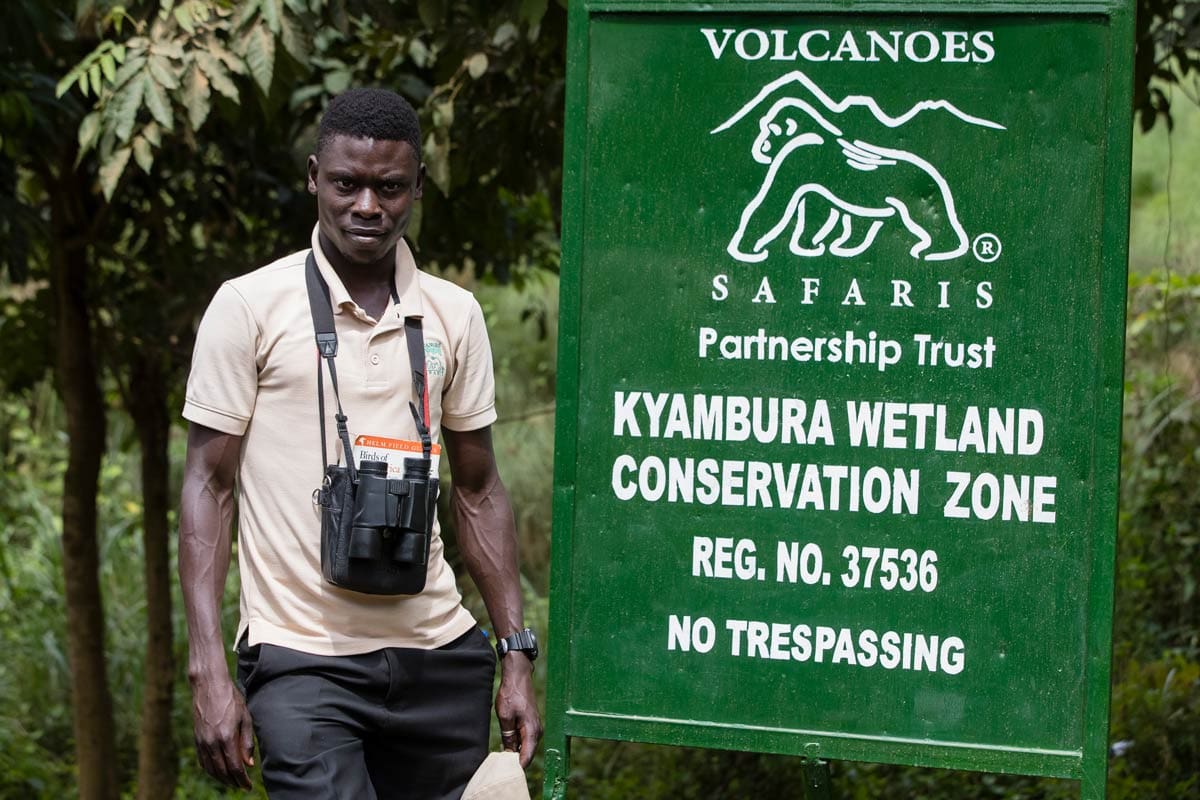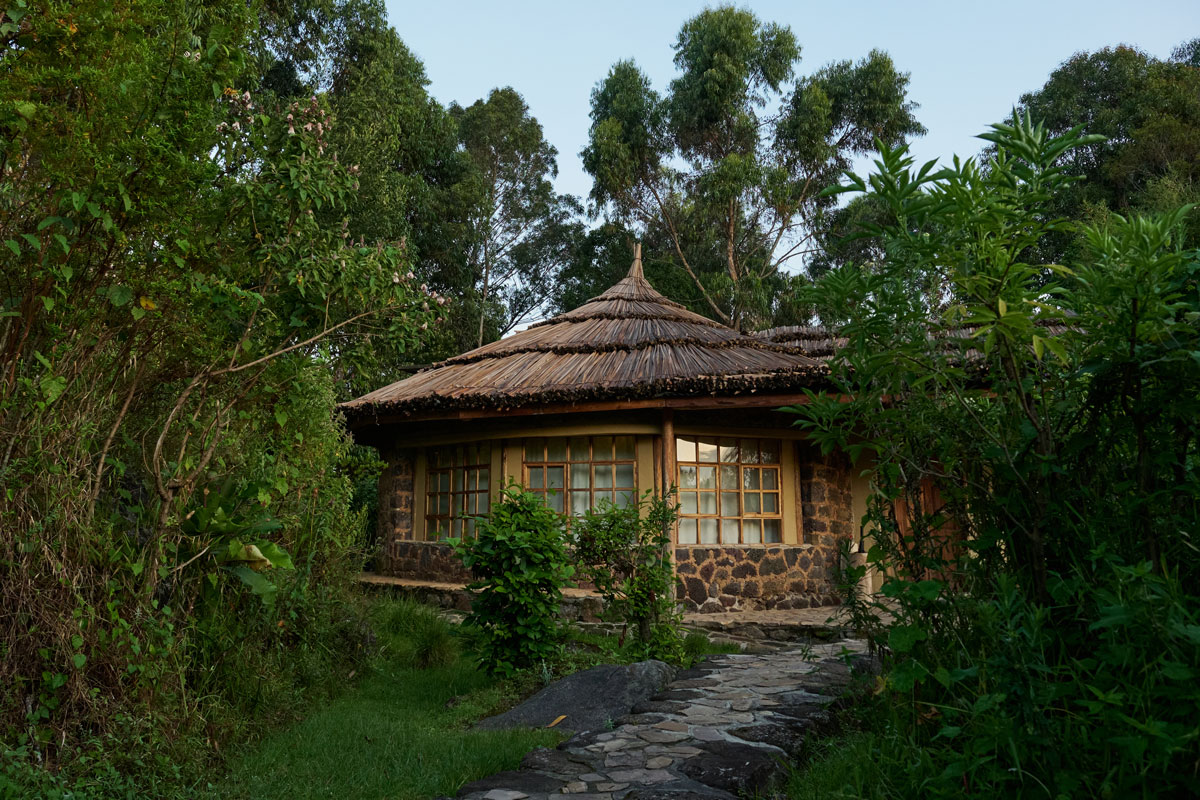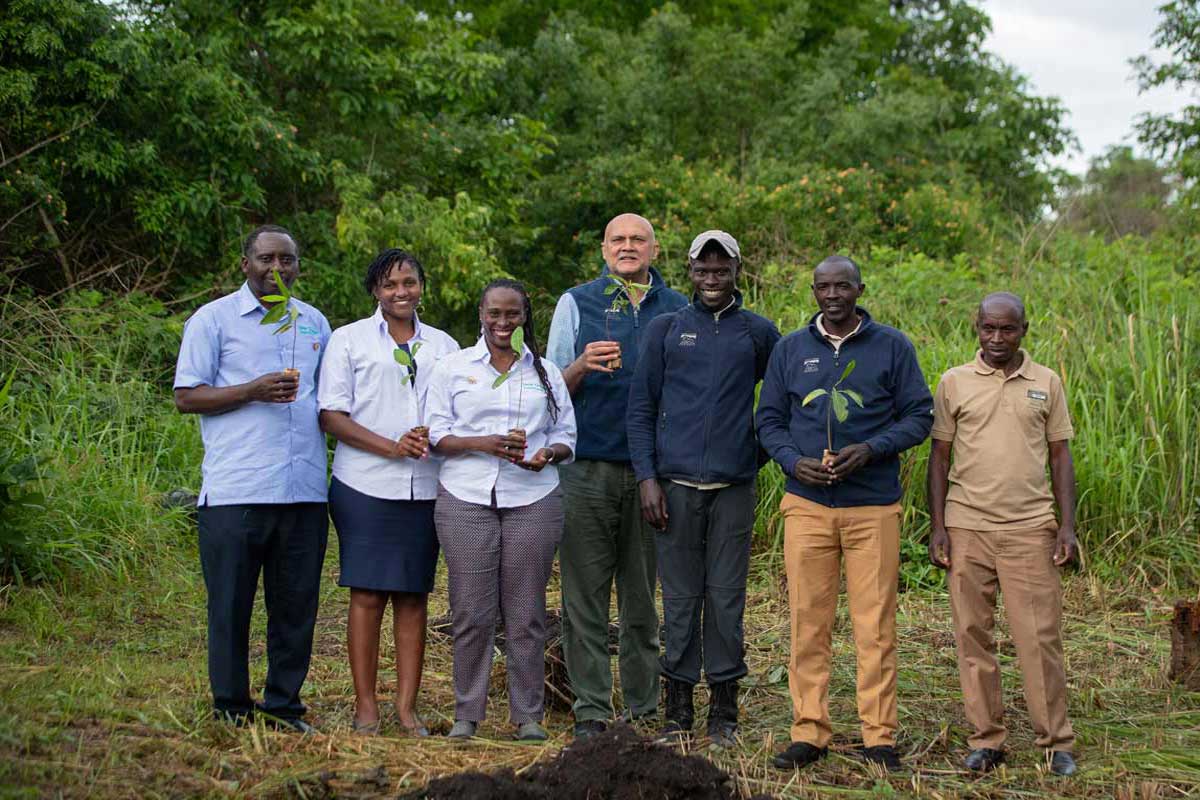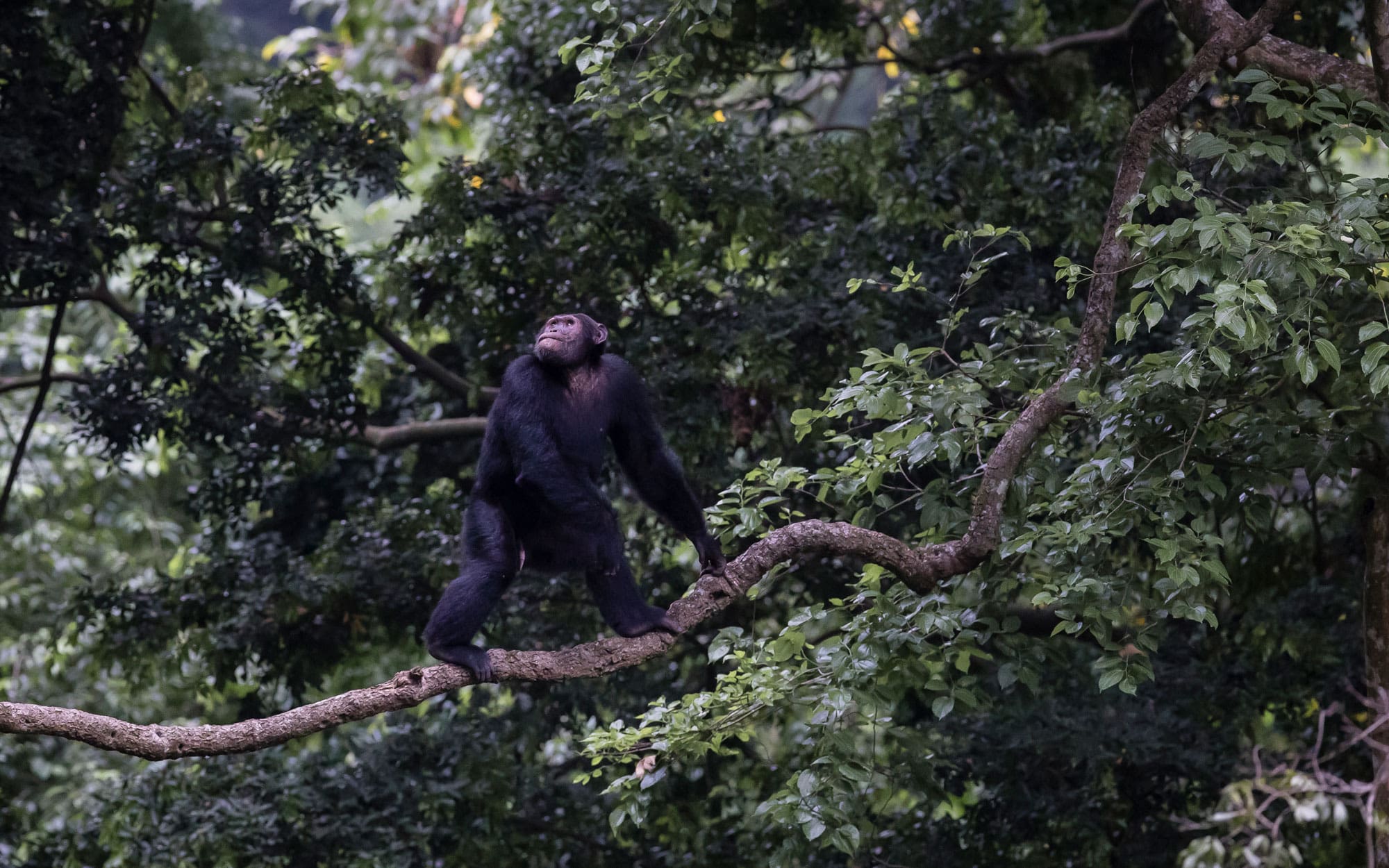The weather in the mountains is changing. For most of the year the weather in the Virungas can be generously described as changeable, and it can be expected to rain at least 3 or 4 times a week. There, the climate here is most like my old university town of Bristol, only with more volcanoes, less cider and more large hairy apes (or maybe not). Now, however, it is the dry season. It has not rained for a week, the sun is out, the sky is blue and everybody is happy, or so I thought.
As it turns out, not everybody is happy that the sun has got his hat on. Surprisingly the largest problem facing the local communities, even bearing in mind that is rains for 40 weeks of the year, is the acquisition of water. There are two very simple reasons for this; firstly everybody lives on the side of a very steep hill, so the rain simply runs away and secondly the ultra-fine volcanic soils of the region retain very little water, becoming almost instantly dry after even the heaviest rainstorm. The best way to visualise this is to imagine trying to catch and store water on an upside down colander. While the forests of the mountains hold some water, within about 2 weeks of no rain all of the local streams begin to run dry. Hence, when the sun is coming out to play, the people of region do not sing ‘hip-hip-hooray’.
The results of this are fairly dramatic. Once the rivers run dry the people have to rely on 2 sources. Those that are lucky enough to live near a tap can queue to fill up their ubiquitous yellow jerry cans there, assuming the water is pumping, which often it is not. The last tap, in typical Ugandan style, is some 6km below the end of the habitation so for large numbers of people it is not a viable option. These people have to use one of several natural springs that dot the area. We are taught, through commercials for over-priced mineral water, that a mountain spring is an idyllic place, where crystal clear water bubbles endless from the ground, quite possibly surrounded by flowering meadows and the occasional cow. Sadly this is pretty far from the truth. In reality, during dry season the springs here resemble a hybrid between a cattle market and a polling station from hell, with a huge line of women waiting to fight the local cows for a chance to access the water slowly dripping from between the rocks.
Unfortunately there is no simple solution, a bore hole is out of the question as geologists estimate it would have to be well over 200m deep to get portable water, and it is highly unlikely the government will invest in mains water anytime soon. Some organisations have built community water tanks, which help, however these suffer the same problems as any common resource, and usually run out well before the end of the dry season. So the best solution remains unclear and until something is found, it is likely the queuing and cow-fighting abilities of the local women will continue to be tested.
Will, Uganda - Volcanoes Safaris Partnerhip Trust



